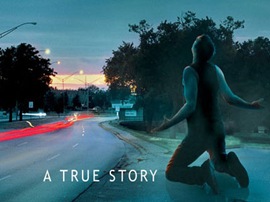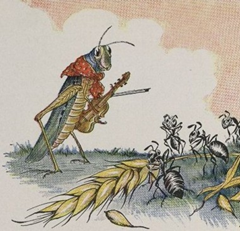Sri Lanka will go down in history as the first country in the post 9/11 era to militarily subdue a terrorist outfit of the scale and magnitude of the LTTE. It's no mean feat and needs to be acknowledged as such.
The military offensive has been brutal and we may never know the number of civilians who were caught in the cross-fire, or blown up being hostages to the Tigers. Throughout the two-year military offensive, India has taken a dual position -- diplomatically pushing for a political settlement with the Tamils while quietly aiding the Sri Lankan military offensive with training, radars, intelligence and an informal naval blockade to prevent the Tigers from coming over to India.
In India, the Sri Lankan military offensive and the domestic imperatives of the elections showed up an important reality. One, the government continued to maintain its distinction between the LTTE and the civilian Tamil population. That was important. Second, it refused to bow to the Tamil frenzy during the elections by demanding some outrageous stuff from the Lankans like a ceasefire, which would never have been agreed to, but would have damaged India's relations with Colombo.
Interestingly, by staring down the domestic popular debate, the Indian government actually cured the Tamil bogey in Tamil Nadu. The worst of the fighting in the Vanni jungles came after the last day of campaigning in Tamil Nadu. The first weeks of May saw the worst of the fighting but there was, by and large, silence from Tamil Nadu. And the best part was that the pro-Tamil (LTTE) parties like MDMK and PMK all lost comprehensively at the hustings.
Karunanidhi had visited the PM and had pushed a political agenda for Colombo to adopt. But he was measured and there was a much more realistic approach this time.
Now that Tamil Tiger chief Velupillai Prabhakaran is dead, there seems to be a move within some parts -- and parties -- of India to treat him like a hero, almost mourning his death and hailing him as a martyr. As an Indian, I'm not so sure that's the right reaction.
If you disagree with me, please answer the five questions below:
1) Was a former Prime Minister of India blown to pieces by an LTTE suicide bomber on May 21, 1991 while campaigning in elections that were subsequently won by his party?
2) Was the LTTE officially banned as a terrorist organisation by the government of India?
3) Was LTTE chief V Prabhakaran on the Indian government's 'most wanted' list for ordering the assassination of Rajiv Gandhi?
4) When India tried to ensure peace in Sri Lanka, did the Indian Peacekeeping Force not get sucked into a bloody war, losing several lives, after the LTTE violated the peace accord?
5) If the answer to all these questions is 'yes', then can anyone, who thinks of himself as first and foremost an Indian, truly mourn the end of the LTTE?
I think there are two elements that we need to consider: 1) Was Prabhakaran's cause justified? 2) Were his methods right?
To answer Question 1, the Tamils of Sri Lanka may well feel discriminated against. It is well known that the Tamilians in SriLanka were treated as sons of step-mothers.
But the harsh fact is, post-9/11, there is simply no international sympathy left for separatist movements anywhere in the world, especially those that resort to terror and killing innocent non-combatants. The best outcome any such movement can hope to achieve is autonomy within the existing national set-up, and hence the demand for a separate Tamil Nation.
India, especially, cannot afford to support any separatist movement in another country because it has faced far too many of its own. It can hardly say that such movements are OK when it comes to other countries, but a problem when it comes to India. Nor can Russia, because that will promptly invite questions about Chechnya. Nor can China, which has the Tibet issue on its hands. The UK achieved peace in Ireland only after many years of violence and bloodshed. And the US is still scarred by 9/11. In other words, the big global players aren't about to back any violent redrawing of national boundaries. And so, despite what some political leaders and others might have said during the election campaigns in Tamil Nadu, there is simply no way by which the Tamil Eelam can be an independent country.
At best, peaceful protests by Tamilians could lead to a measure of autonomy within Lanka. Now that Rajapakse has achieved such a comprehensive victory, he may not be in any mood to be magnanimous. That would be short-sighted. Because the best way to achieve long-lasting peace in Lanka would be to heal the wounds of the entire populace, and that includes the Tamilians.
On to the second question, were Prabhakaran's methods right? Well, he spearheaded a conflict that left more than 70,000 dead from pitched battles, suicide attacks, bomb strikes and assassinations. He began his career by murdering Alfred Duraiappah, then mayor of Jaffna. He decimated rival groups TELO and EPRLF and hunted down their founders, like TELO's Sri Sabaratnam.
His gunmen assassinated TULF leader A Amirthalingam in Colombo in 1989. PLOTE leader Uma Maheswaran was shot dead by an LTTE hit squad. Another squad killed EPRLF leader K Padmanabha and 13 others in a Chennai apartment complex in 1990.
Prabhakaran frequently had chances to make peace, including the India-Lanka peace accord of 1987. Instead, he turned on India and fought the Indian peace-keeping force. This culminated in the assassination of Rajiv Gandhi in 1991. In 1993, Lankan president Ranasinghe Premadasa was killed by an LTTE suicide bombing. In 1999, another Lankan President, Chandrika Kumaratunga, lost vision in her right eye after an attempt on her life by the LTTE.
Now, for those who would like to brand me anti-Tamil, I am not. My issue is only with the way LTTE followed. LTTE had ordered many suicide bombings. They had killed many-a-rivals, who were fellow Tamils during the rise to power. Under Prabhakaran’s leadership, LTTE carried out the assassination of Rajiv Gandhi. This I believe was one of the reasons why the Govt. of India did not actively participate to try and stop the Lankan Army's drive which finally led to the collapse of LTTE.
What remains to be seen and what needs to be ensured by the big global players and India is that equal rights are granted to Tamilians in SriLanka. War and Violence is not the answer.











